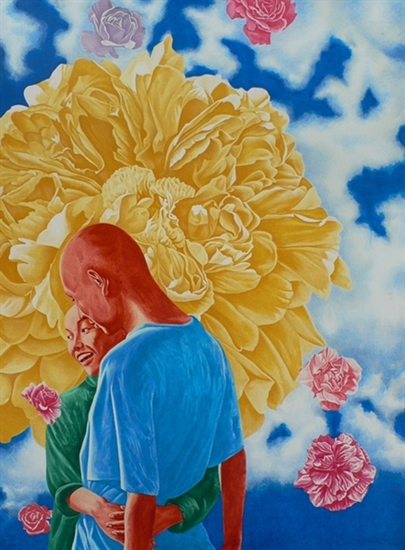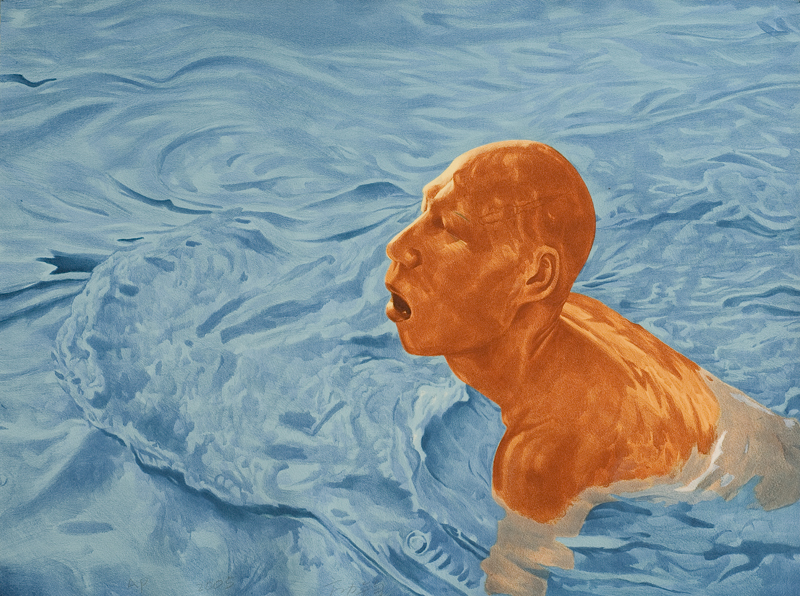Works
Vita
Fang Lijun, born 1963 in Handan, Hebel Province, is one of the leading and most influential contemporary artists in China. Fang Lijun is known as one of the predecessors of the early Nineties movement, known as Cynical Realism. This artist trend developed as a successor to the 1989 student demonstration in Tiananmen and through the closure of the “China Avant-Garde”. Exhibition At the China National Gallery in Beijing. These events, which symbolize the climax of the artistic aspiration that was built up in the eighties, immediately failed, leaving a void that Fang Lijun and others filled with a new message, full of irony and indifference to the great powers to which the individual is subject. Fang Lijun was one of the first artists to bring this new social temperament to the canvas. The idealism of the eighties gave way to a darker and more realistic understanding of the role of avant-garde art under a one-party system. Fang Lijun redefined the new artistic tendencies of contemporary Chinese art in the nineties. The tragic events that resulted in cynical realism show the impairments in the art society. Self-confidence can handle serious problems under a critical eye. Just as a person is capable, a physically weak person is tyrannized by a stronger, but not necessarily more intelligent, person. The weak cannot fight, they only remain behind with nothing but a cynical smile that embodies their inability to assert themselves. Fang Lijun’s famous figure, along with Yue Minjun’s representative character, are now widely used symbols in the world of contemporary Chinese art. Fang Lijun’s bald man, with his ambiguous expression and the rather dreamlike background of unlimited space and unlimited freedom, became a symbol of the refined taunt that can be seen in the works of the artists of cynical realism.
Contact

